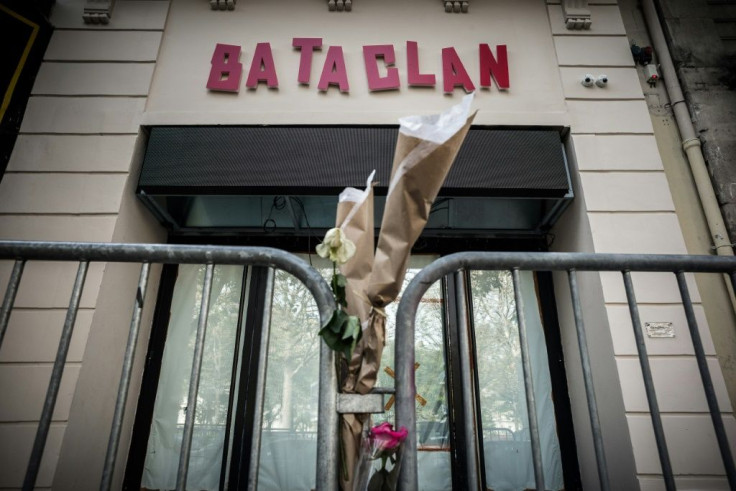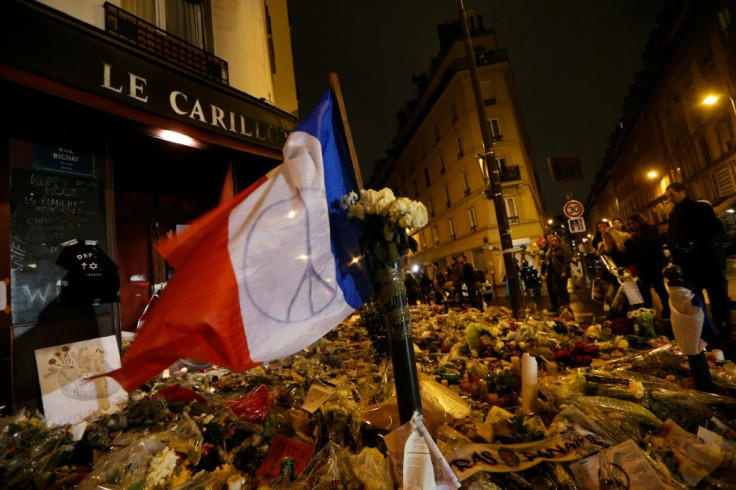Paris Carnage: November 13, 2015
On the night of November 13, 2015 France suffered its deadliest ever terror attack when jihadists killed 130 people and wounded 350 as suicide bombers struck several popular locations in Paris.
Here we look back at how the night of carnage unfolded:
At France's national stadium in Saint-Denis during a football match between France and Germany, three suicide bombers blow themselves up at the gates between 9:20 pm and 9:53 pm.
A 63-year-old Portuguese bus driver who had lived in France for a long time, Manuel Colaco Dias, is killed.
French President Francois Hollande is one of the 80,000 people in the crowd watching the match and he is discreetly evacuated from the stadium to avoid triggering a mass panic among supporters.
"It is a horror," he says a few hours later in his televised address to the nation.

At the same time as the drama unfolds at the Stade de France, a group of black-clad gunmen riding a black Seat car spray bullets at terrified evening drinkers in trendy central districts of the capital.
In a deadly half-hour 39 people are gunned down by assault rifles.
Le Petit Cambodge restaurant and Carillon bar near Saint-Martin canal are the first to come under attack at 9:25 pm, followed by the Bonne Biere cafe, the Casa Nostra pizzeria and the Belle Equipe restaurant.
At another bar, Le Comptoir Voltaire, one of the gunmen blows himself up, but no one else is killed.
Two kilometres away at the Bataclan music hall, a concert is in full swing with a 1,500-strong crowd enjoying the rock group Eagles of Death Metal.
At 9:40 pm a black Volkswagen Polo with Belgian number plates draws up outside the venue. Three men get out, guns in hands and strapped with explosives.

The song "Kiss the Devil' is in full flow when the gunmen break into the main hall and start shooting into the crowd.
The bloodbath lasts more than three hours and leaves 90 people dead.
"I see people fold like wheat against the wind," says one survivor, aged 24 at the time. "I turn around, I see two armed people who shoot at anything that moves... I find myself on the ground with everyone."
Some spectators manage to escape, others hide in the false ceilings or on the roof, while on the ground several terrified people pretend they are dead among the corpses.
"With my boyfriend we kept on saying we loved each other. So much so that a guy said to us: 'Shut up, you're making too much noise'. I felt this urgency to say I loved," says one young woman.
A policeman enters the building shortly before 10:00 pm and fires at one of the gunmen who had remained downstairs. His suicide device blows up.
The two other gunmen are holding hostage a dozen people upstairs. "They say they are from the Islamic State group, that it is the fault of Francois Hollande," one hostage recalls. "For me, we were dead. I couldn't see how it could end well."
The two gunmen are killed when elite security forces put an end to the assault at 12:18 am. One of the men blows himself up while the other is shot dead.
The Islamic State group claims responsibility for the attacks and a hunt is swiftly under way to track down all those connected to the 10 gunmen who carried out the November 13 assaults.
Abdelhamid Abaaoud, a Belgian and the suspected mastermind of the attacks, is killed in a shootout with French police on November 18 in Saint-Denis.
There is just one survivor from the original group of 10 from the November 13 attacks -- Belgian Salah Abdeslam. The nine other assailants either detonated their explosive devices or were killed by police.
Abdeslam is arrested in Brussels in March 2016.
Nearly six years later, 20 suspects including Abdeslam will stand trial in Paris starting on September 8.
Over the course of the trial, nearly 1,800 victims, either injured or witnesses to the carnage that night, or who lost loved ones, will be present.
"The people who were right next to us are dead, they were just 50 centimetres to the left," says one survivor. "Pure chance, it is really hard to deal with this."
© Copyright AFP 2024. All rights reserved.




















